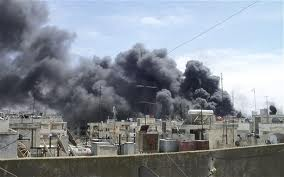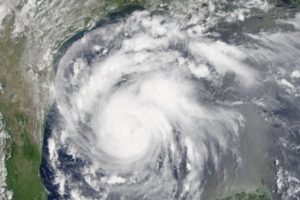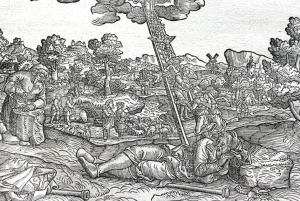 As Barack Obama, advisers and members of Congress consider how to confront the spiral of violence in Syria, Christians should ask themselves, “Does the Holy Spirit ever inspire violence?”
As Barack Obama, advisers and members of Congress consider how to confront the spiral of violence in Syria, Christians should ask themselves, “Does the Holy Spirit ever inspire violence?”
This is a dangerous question, and I am prone to answer it with a loud and clear, “No!” The Spirit inspires peace and love, healing, and prophetic witness, like Martin Luther King Jr.’s famed speech 50 years ago, but the Spirit does not, will not inspire violence.
Is my first reaction right? What about the biblical book of Judges, where even deeply flawed people are inspired to liberate the ancient tribes of Israel? The model comes early in the book:
But when the Israelites cried out to the LORD, the LORD raised up a deliverer for the Israelites, who delivered them, Othniel son of Kenaz, Caleb’s younger brother. The Spirit of the LORD came upon him, and he judged Israel; he went out to war, and the LORD gave King Cushan-rishathaim of Aram into his hand … So the land had rest forty years… (Judges 3:9-11).
This sketch sets the pattern for many of the judges to come: the people cry out; the Spirit inspires a deliverer called a judge; this judge delivers the people through war; the people experience peace. In this pattern, there is the inescapable association of the Spirit with war.
The judges — liberators, really — are so famous as to belong almost to cartoon reality. Cowardly Gideon, who hid in a wine press, took a mere 300 men and defeated the Midianites, thanks to the Spirit. Jephthah, a bastard (really, an illegitimate son), who made an unnecessary vow to sacrifice whatever came from his door (turns out, his daughter walked out the door), liberated his people, thanks to the Spirit. And womanizer Samson, of Samson and Delilah fame, liberated his people, thanks to the Spirit.
Did the Spirit inspire violence in these cases? German theologian Michael Welker answers, “No!” The Spirit did not inspire violence. The Spirit did no more than restore solidarity by raising the oppressed:
Even the early experiences of God’s Spirit are experiences of how a new beginning is made toward restoring the community of God’s people. They are experiences of the forgiveness of sins, of the raising up of the ‘crushed and oppressed,’ and of the renewal of the forces of life.
There is truth in this (God the Spirit, page 65). When the Spirit clothed Gideon, for example, he gathered the people together. When the Spirit came upon Jephthah, he passed through Gilead and Manasseh before ever going to war.
I appreciate what Welker is trying to do by distancing the Spirit from violence, but I’m not convinced he is right. Othniel’s only recorded actions are to judge Israel and to lead them successfully into battle. Gideon finds himself shortly in the company of “all the troops that were with him,” which are whittled down to 300. Jephthah travels to muster the troops. Samson poses the biggest problem. When the Spirit rushed upon Samson for a second time, “he went down to Ashkelon” and “killed thirty men.” When the Spirit gave him superhuman strength a third time, causing the cords that bound him to melt, immediately he found the fresh jawbone of an ass and killed a thousand men with it.
Does the Spirit inspire violence? Well, yes, but only in a single set of circumstances: when the restoration of solidarity for oppressed peoples requires violence. The book of Judges does not espouse a universal association between the Spirit and violence. The premise of the book of Judges is that God raises liberators only when a nation, oppressed by foreign powers, cries for help — not unlike their ancestral slaves in Pharaoh’s Egypt.
Notice that throughout the Bible the Spirit does not inspire violence when the nation of Israel was powerful. In stories that cluster around the reign of Solomon, for example, the Spirit is conspicuously absent. In stories that accentuate Israel’s vulnerability and fragility, such as those that cluster around the judges, the Spirit is conspicuously present. The association of the Spirit with violence, therefore, is conditioned by the presence of oppression, when solidarity cannot be restored, when the poor cannot be liberated, without charismatic leadership in battle against oppressors.
Which leads us back to the decision facing Barack Obama. Are the people of Syria so destitute, so cornered by chemical weapons, so oppressed that there is no alternative but violence? Or will a limited attack on Syria be a symbolic, punitive gesture that fails to liberate an oppressed people? That is the epic question facing Barack Obama in the hours and days ahead.
_______________________________________________________________________________________________________________________
I published this post earlier in the week in The Huffington Post. Because it prompted so many comments, I decided to publish it in spiritchatter as well.












